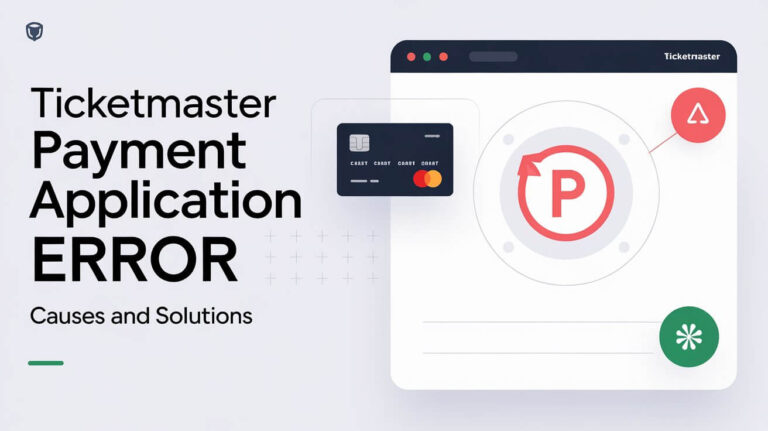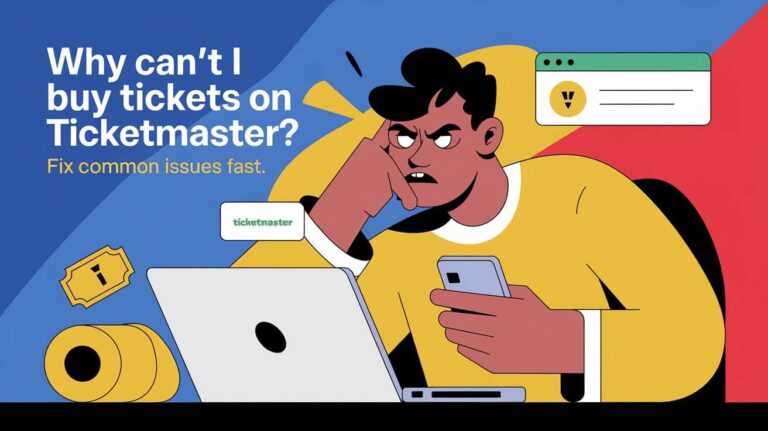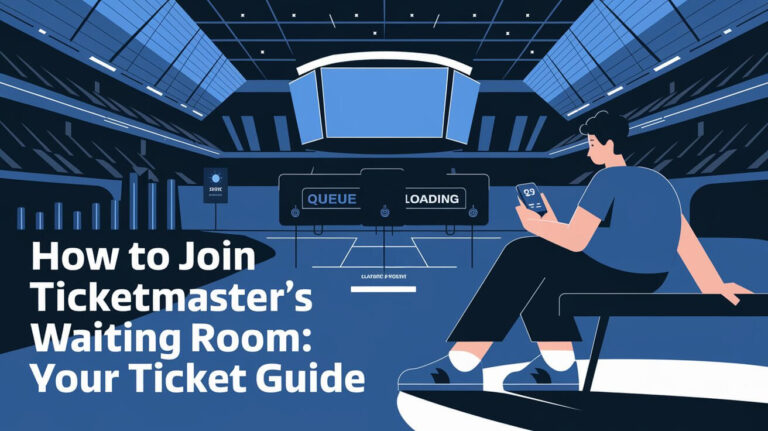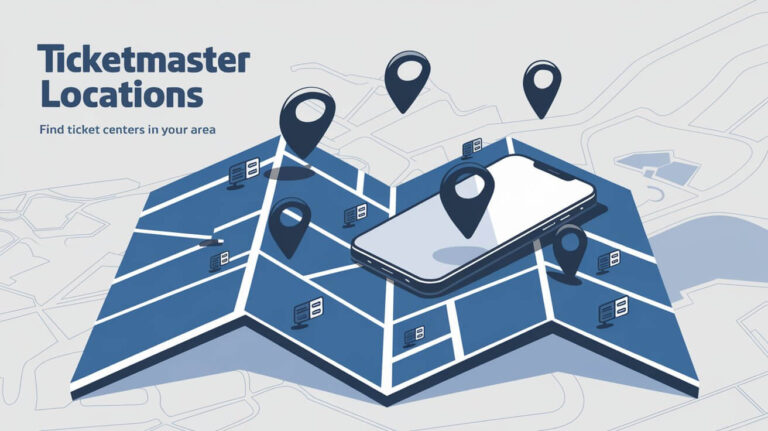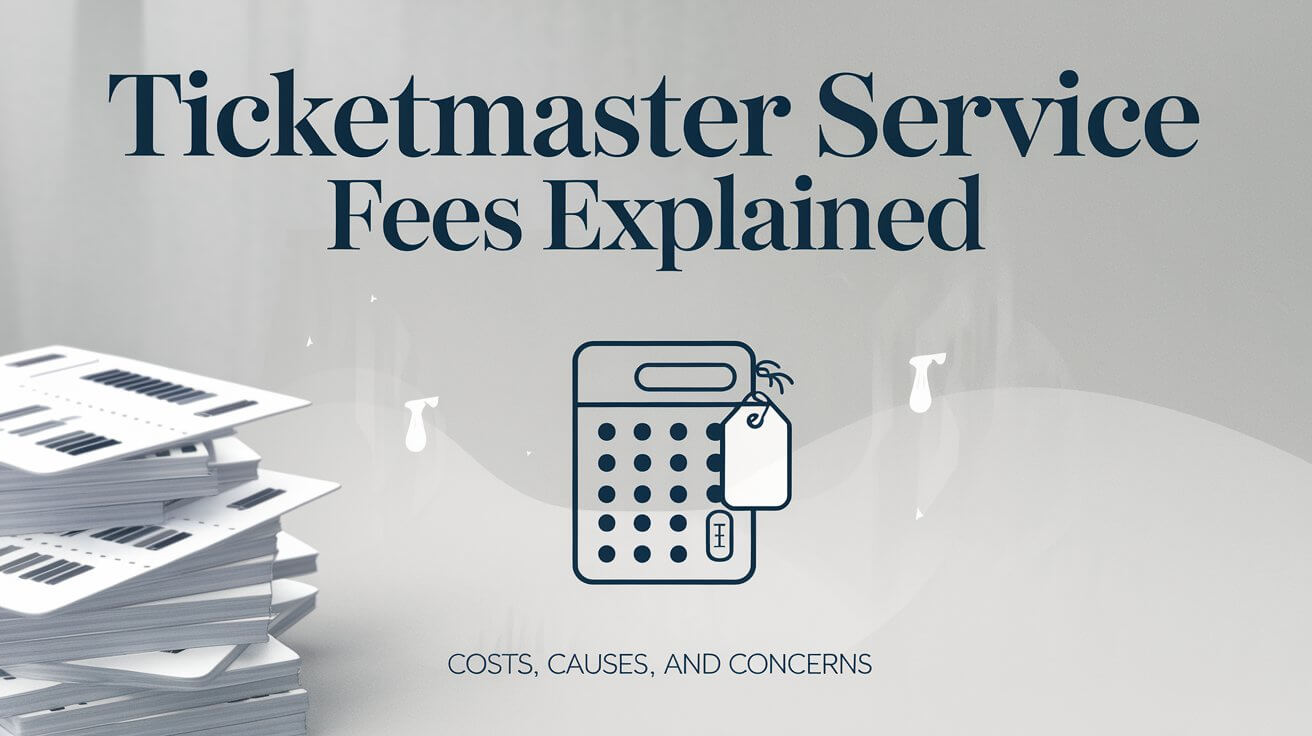
Ticket buyers often grumble about Ticketmaster’s extra charges. These fees can add 10-20% to the ticket price, leaving many folks confused and annoyed. Why are these fees needed? Where does the money go? Let’s dig into Ticketmaster’s pricing, how it affects you, and some ways to pay less.
Ticketmaster Service Fees
Definition and Purpose
Ticketmaster service fees are tacked-on charges that cover the costs of running their ticketing platform. They’re not part of the ticket’s face value but instead appear as separate line items during checkout. These fees help Ticketmaster maintain its online systems, provide customer support, and handle payment processing.
How Service Fees Are Calculated
The exact amount of a Ticketmaster service fee varies depending on several factors:
- Event type
- Ticket price
- Venue agreements
- Local market conditions
For instance, a high-profile concert in a major city might have higher service fees than a small theater production in a rural area. Ticketmaster doesn’t use a one-size-fits-all approach, which explains why fees can differ significantly from one event to another.
Components of Ticketmaster’s Fee Structure
Service Fee
The service fee is the primary charge Ticketmaster adds to each ticket. It’s usually the largest fee you’ll see and can range from a few dollars to over $20 per ticket. This fee covers Ticketmaster’s operational costs and profit margin.
Order Processing Fee
An order processing fee is a flat rate charged once per order, regardless of how many tickets you buy. It typically ranges from $2 to $5 and helps cover the costs of processing your payment and order details.
Delivery Fee
Delivery fees vary based on how you choose to receive your tickets. While e-tickets are often free, physical tickets mailed to your home or available for pickup at will-call windows may incur additional charges.
Facility Charge
Some venues tack on a facility charge to help cover their operational costs. This fee goes directly to the venue, not Ticketmaster, and can range from a few dollars to $10 or more per ticket.
Factors Influencing Ticketmaster Service Fees
Event Type and Popularity
High-demand events like major concerts or playoff sports games often come with higher service fees. Ticketmaster knows these events will sell out quickly, allowing them to charge premium fees.
Venue Agreements
Ticketmaster negotiates agreements with venues and event organizers. These contracts often dictate fee structures and revenue sharing, impacting the final cost to consumers.
Ticket Face Value
Generally, more expensive tickets come with higher service fees. A $20 ticket might have a $4 service fee, while a $200 ticket could have a $40 fee. This percentage-based approach means buyers of premium tickets often pay significantly more in fees.
Where Does the Money from Service Fees Go?
Revenue Distribution
Contrary to popular belief, Ticketmaster doesn’t pocket all the money from service fees. They share a portion with venues, promoters, and artists. The exact split varies but often follows this general breakdown:
- Venues: 30-40%
- Ticketmaster: 30-40%
- Promoters/Artists: 20-30%
Ticketmaster’s Cut
Ticketmaster uses its share to cover operational costs, including:
- Website maintenance and development
- Customer service operations
- Payment processing systems
- Marketing and promotional activities
The remainder contributes to Ticketmaster’s profit margin, which has been a point of contention for many consumers and industry watchdogs.
Controversies Surrounding Ticketmaster Service Fees
Public Perception
Many ticket buyers view Ticketmaster’s fees as excessive and opaque. The sudden jump in price from the advertised ticket cost to the final checkout amount often leaves a sour taste. This perception has led to widespread criticism and calls for greater transparency in ticket pricing.
Legal Challenges
Ticketmaster has faced numerous lawsuits over its fee practices. In 2003, the company settled a class-action suit for $22.3 million, though it admitted no wrongdoing. More recently, the company has faced scrutiny from lawmakers and regulators over its market dominance and pricing strategies.
Comparing Ticketmaster Fees to Other Ticket Sellers
Major Competitors
While Ticketmaster is the largest player in the ticketing industry, it’s not the only option. Competitors like StubHub, SeatGeek, and AXS also charge service fees. Here’s a quick comparison:
- StubHub: Fees typically range from 10-15% for buyers
- SeatGeek: Fees vary but are often slightly lower than Ticketmaster’s
- AXS: Fees are comparable to Ticketmaster’s but can be lower for some events
Fee Transparency Across Platforms
In recent years, there’s been a push for greater fee transparency in the ticketing industry. Some platforms now offer “all-in” pricing, showing the total cost upfront. Ticketmaster has started implementing this for some events, but it’s not yet universal across their platform.
Strategies to Minimize Ticketmaster Service Fees
Box Office Purchases
Buying tickets directly from the venue’s box office can often help you avoid or reduce service fees. However, this option isn’t always practical, especially for high-demand events or if you live far from the venue.
Presale and Fan Club Options
Joining artist fan clubs or signing up for presales can sometimes give you access to tickets with reduced fees. While these options might require a membership fee, they can save money for frequent concert-goers.
Fee-Free Promotions
Occasionally, Ticketmaster runs promotions with reduced or waived fees. Keep an eye out for these deals, especially during slower ticketing periods.
The Future of Ticketmaster Service Fees
Industry Trends
The ticketing industry is evolving, with more emphasis on mobile ticketing and blockchain technology. These advancements could potentially reduce operational costs and, in turn, lower service fees. However, it’s unclear if these savings would be passed on to consumers.
Potential Regulatory Changes
There’s growing pressure from consumers and lawmakers for more regulation in the ticketing industry. Proposed measures include:
- Mandatory all-in pricing
- Caps on service fee percentages
- Greater transparency in fee breakdowns
While no major changes have been implemented yet, the industry is clearly under scrutiny.
FAQs About Ticketmaster Service Fees
Are Ticketmaster fees refundable?
Usually not. Even if an event is canceled, the service fee is often non-refundable.
Can I avoid Ticketmaster fees altogether?
It’s challenging but possible for some events by buying directly from the venue box office.
Why are Ticketmaster fees so high for some events?
Fees can spike for high-demand events due to dynamic pricing models and agreements with venues and promoters.
Do artists get a cut of Ticketmaster fees?
Sometimes. It depends on their contract with promoters and venues.
Is Ticketmaster the only company that charges these fees?
No, most ticketing platforms charge similar fees, though amounts can vary.
Ticketmaster’s service fees remain a contentious issue in the entertainment industry. While they serve a purpose in covering operational costs and supporting the ticketing ecosystem, many consumers find them excessive and lack transparency. As the industry evolves and faces increased scrutiny, we may see changes in how these fees are structured and presented. Until then, understanding the fee structure and exploring alternative purchasing options can help mitigate the impact of these additional costs on your event-going budget.

